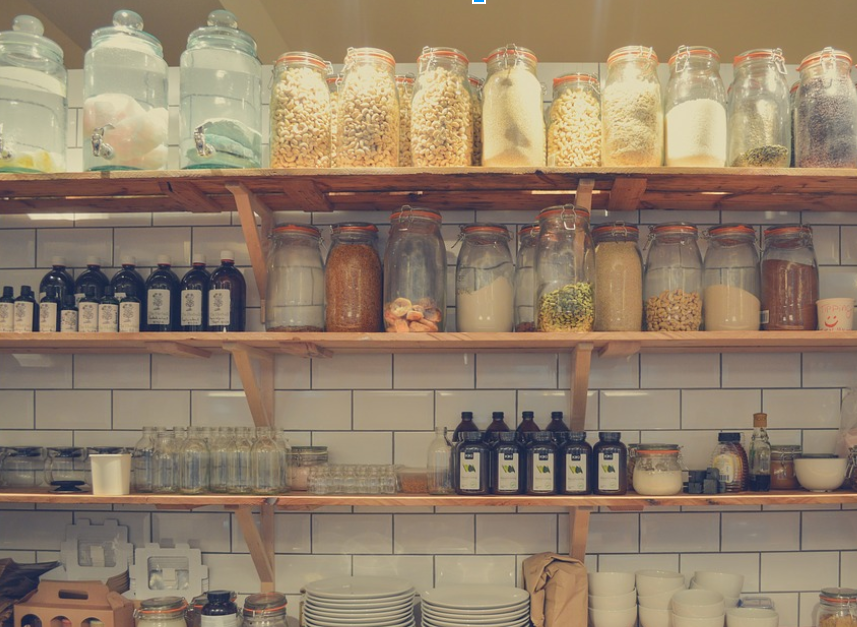
5 Ways To Properly Store Food in Restaurants
Storing food in the right way is important in keeping our food safe and it also prevents wastage. The safety of our food is also paramount in keeping our health safe and keeping us away from disease. For commercial restaurants and hotels, proper food storage practices could be the difference between incurring losses and maintaining high-profit margins. There are 5 safety procedures for storing food that you could adopt at home or at a restaurant to ensure that your food is safe.
1. Monitored Temperatures
Food needs to be stored in cold temperatures in order to prevent microbes from working to destroy your food. Therefore, your fridge or freezer needs to be working properly to control the temperatures and keep them where they are supposed to be. The fridge will need to have a proper thermometer and a good sensor which can detect any fall in temperatures and have an alarm or beep to inform you in advance. It is not a wonder that sometimes there could be electrical faults that could cause a shortage in electric flow. In the case on such an eventuality, your food can go bad in an instant. You, therefore, need to have a pre-installed generator that is integrated with the appliances and can automatically start in case of an electrical fault. Your fridge also needs to have regular maintenance to ensure that the temperatures it is indicating are correct. Your fridge should have temperatures ranging between 0 and 5 degrees.
2. The Food that goes in your Fridge Should be Labelled
You need to understand that there are foods that go bad faster than others and they, therefore, need to be stored first as a priority and consumed on time. The food also needs to be labeled properly to understand properly what food goes in the fridge and at what time it was placed in the fridge. Food like milk and meat need to be stored as a priority and labeled appropriately. Leftovers need to be stored fast in the refrigerator and be eaten within two days. Also, follow the manufacturer’s instructions and store the food in a storage container or covered bowl before refrigerating it.
3. Using Dry Food Containers
Many foods are not meant to be stored in the fridge to be safe for consumption. Foods such as rice, flour, pasta, tinned foods, many types of beverages and unopened jars don’t need to be stored in the fridge because they can last longer if stored properly elsewhere. One way to achieve this is by keeping the food in sealed bags or containers to prevent anything foreign from falling accidentally in the food. You should also churn away from storing your drinks and food near chemicals or cleaning products and do not store your food in containers that have been used for other purposes. Only use undamaged bags and containers that have to be thoroughly cleaned. You should also avoid keeping your food on or near the floor to keep away from mites, rats, and ants from tampering with the food. The most important practice you should maintain is to ensure that you store the food in dry containers. Once you adopt these practices in food storage then you should have safe food for a very long time.
4. Maintaining Cleanliness
A clean environment is vital for the safe condition of the food. When storing any food, you should make sure that all the cleaning factors are taken into consideration from cleaning the food to cleaning the containers where the food will be stored. The fridge should also be thoroughly cleaned to prevent any microbes that would be in the fridge from invading the food. Cleanliness is one of the most important procedure to take at home or at a restaurant.
5. Rotating food
Rotating food in the fridge is one way to ensure that there is no food that has taken so long in the fridge. Once the food has been properly labeled, you can be able to decide what food was stored earlier so that when you want to store additional food, you first remove the food that had been stored earlier. This is a simple yet very effective method that prevents food from being left in the fridge or at the bottom of the freezer. This procedure also prevents older foods from going bad in the fridge causing a foul smell of even other newer food from going bad.
Good safety practices in storing food are very important in keeping your food safe from damage and prevents food from going to waste which might save a lot of costs. Our health is also kept safe when we consume well-maintained foods.
References
https://www.nidirect.gov.uk/articles/storing-food-safely
https://www.nisbets.co.uk/foodstorage

